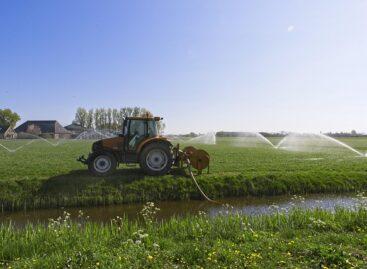Syngenta invests 2 billion dollars in sustainable farming
• Syngenta dedicates $2 billion over five years to innovation specifically targeted at delivering a step change in agricultural sustainability
• CEO Erik Fyrwald commits Syngenta to drive two technological breakthroughs to market each year at Sustainability Summit in New York
• Syngenta will reduce the carbon intensity of the company’s operations by 50 percent by 2030, to support the goals of the Paris Agreement on climate change
Syngenta’s commitment has been validated and endorsed by the Science Based Targets initiative (SBTi). CEO Erik Fyrwald said: ‘Agriculture is now at the frontline of global efforts to tackle climate change. Syngenta is committed to accelerating our innovation to find better and ever safer solutions to address the shared challenge of climate change and biodiversity loss.’
The USD 2 billion will be invested in programmes with clearly differentiated benefits or breakthrough technologies that will enable a step change in agricultural sustainability, such as land use, soil health and integrated pest management.
Through a multi-year collaboration with The Nature Conservancy, Syngenta is developing strategies to identify and test new innovations and technology that can benefit farmers and contribute to positive environmental outcomes. The collaboration is grounded in efforts to promote soil health, resource efficiency and habitat protection in major agricultural regions worldwide.
Sally Jewell, CEO at The Nature Conservancy said: ‘Syngenta’s investment in innovation is an important step toward a future where people and nature thrive.’ The targets form part of Syngenta’s Accelerating Innovation commitment launched earlier this year to address the increased challenges faced by farmers because of climate change, soil erosion, and biodiversity loss. (x)
Related news
Climate change is not sparing grapes either, but its effects can be mitigated, according to Syngenta
Despite the decrease in the area under cultivation, grape growing…
Read more >The decline in Hungarian grape production may stop, according to an international agricultural company
The decline in Hungarian grape production may stop, but climate…
Read more >The country’s water retention capacity will improve significantly
Thanks to the currently ongoing and planned developments, instead of…
Read more >Related news
What makes us add the product to the cart – research
The latest joint research by PwC and Publicis Groupe Hungary…
Read more >Energy drinks are now legal: what every shopkeeper should know
New regulations on the sale of energy drinks came into…
Read more >Tens of millions with one opening tab – the biggest prize draw in XIXO history has started
This summer, XIXO is preparing for a bigger launch than…
Read more >






